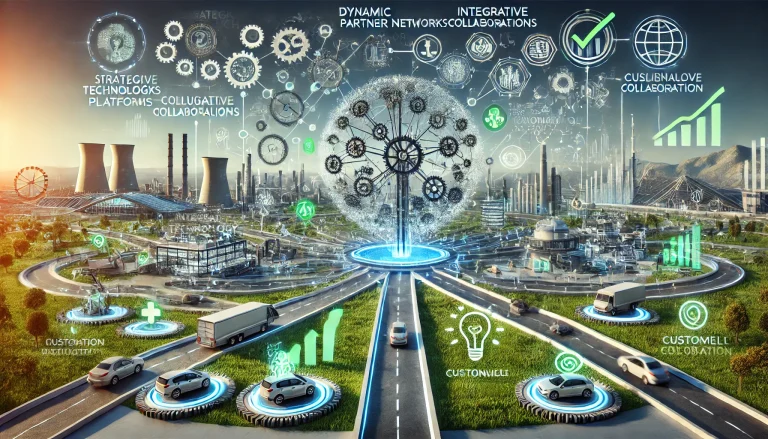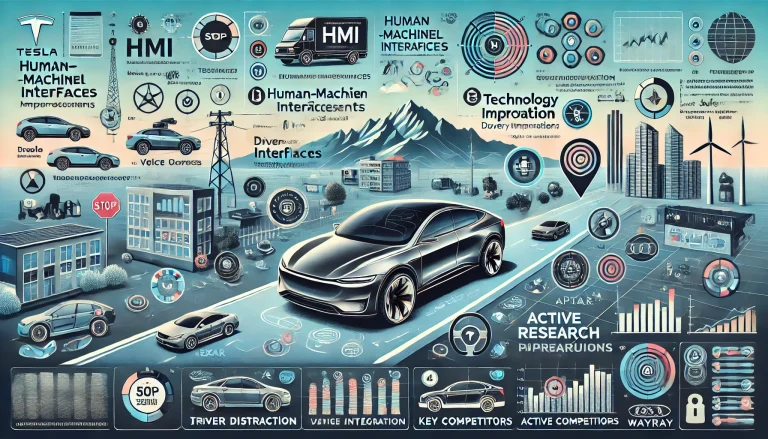Problem Statement
The shift towards electric and autonomous vehicles is reshaping the automotive industry, demanding new skills and expertise. This transition has created a significant skills gap, as the current workforce is not fully equipped to handle the emerging technologies. Ensuring that workers are trained and capable of managing these advancements is a major challenge for automotive manufacturers.
Pain Points
- Rapid Technological Advancements: Keeping pace with the fast-evolving technologies in electric and autonomous vehicles.
- Training Programs: Developing comprehensive and effective training programs.
- Skill Set Mismatch: Existing workforce lacks necessary skills for new technologies.
- Cost of Training: High costs associated with upskilling the workforce.
- Employee Resistance: Resistance to change and adaptation among existing employees.
- Recruitment Challenges: Difficulty in attracting new talent with the required expertise.
- Integration of New Skills: Ensuring seamless integration of new skills within existing operations.
- Certification and Standardization: Establishing standardized certifications for new skills.
- Long Learning Curves: Extended time required for employees to become proficient in new technologies.
- Retention of Trained Staff: Risk of losing skilled employees to competitors after training.

Future Vision
The future vision for addressing the skills gap in the automotive industry involves creating a robust ecosystem for continuous learning and development. This includes partnerships with educational institutions, development of industry-specific certifications, and the implementation of advanced training methodologies like virtual reality (VR) and augmented reality (AR). Companies will also invest in talent acquisition strategies to attract and retain skilled professionals, fostering a culture of innovation and adaptability within the workforce. By prioritizing workforce development, the industry can ensure a smooth transition to electric and autonomous vehicles.
Use Cases
- VR/AR Training Modules: Immersive training programs using VR and AR to simulate real-world scenarios.
- Online Learning Platforms: Accessible e-learning platforms for continuous skill development.
- Industry-Academia Partnerships: Collaborations with universities to create specialized courses.
- Apprenticeship Programs: Hands-on training through apprenticeship programs with industry leaders.
- Certification Programs: Development of standardized certification programs for new skills.
- Recruitment Drives: Targeted recruitment campaigns to attract skilled talent.
- Internal Innovation Labs: Establishing innovation labs for employees to experiment with new technologies.
- Talent Retention Strategies: Implementing strategies to retain skilled employees.
- Knowledge Sharing Platforms: Internal platforms for sharing best practices and knowledge.
- Performance Tracking Tools: Tools to monitor and assess employee performance and skill progression.
Target Users and Stakeholders
User: Automotive Engineers and Technicians
Age Group: 25-50 years
Gender: All genders
Usage Pattern: Continuous learning and application of new skills
Benefit: Ensures the workforce is equipped to handle new technologies, enhancing productivity and innovation
Stakeholders
- Automotive Manufacturers: Responsible for upskilling the workforce.
- Educational Institutions: Partners in developing specialized courses and training programs.
- Employees: The current workforce needing upskilling.
- Recruitment Agencies: Facilitating the hiring of skilled talent.
- Technology Providers: Offering tools and platforms for training.
- Industry Associations: Establishing standards and certifications.
- Government Bodies: Providing funding and policy support for training programs.
- Consumers: Benefiting from enhanced product quality and innovation.
- Investors: Evaluating the long-term potential of workforce development investments.
- Unions: Advocating for employee training and development.

Key Competition
- Tesla: Leading in electric vehicle technology and workforce development.
- Waymo: Pioneering autonomous vehicle technology with skilled workforce.
- Ford: Investing heavily in training programs for electric and autonomous vehicles.
- General Motors: Developing comprehensive training and certification programs.
- Volkswagen: Leading in workforce development for new automotive technologies.
Products/Services
- VR/AR Training Solutions: Immersive training modules for workforce development.
- Online Learning Platforms: E-learning solutions for continuous skill enhancement.
- Certification Programs: Standardized certification courses for new technologies.
- Recruitment Services: Specialized services for hiring skilled talent.
- Performance Tracking Tools: Monitoring tools to assess skill development.
Active Startups
- Aptiv: Developing solutions for autonomous driving technology.
- Aurora: Leading in self-driving technology with a focus on workforce skills.
- Nuro: Pioneering autonomous delivery solutions and training programs.
- Rivian: Innovating in electric vehicle technology and workforce training.
- Zoox: Developing autonomous vehicles with a skilled workforce.
- Cruise: Focusing on autonomous vehicle technology and employee training.
- Argo AI: Leading in autonomous driving technology and workforce development.
- Luminar: Innovating in lidar technology with a focus on skill enhancement.
- TuSimple: Developing autonomous trucking solutions with comprehensive training programs.
- Embark: Pioneering autonomous trucking technology with a skilled workforce.
Ongoing Work in Related Areas
- AI and Machine Learning: Integrating AI in training programs.
- VR/AR Training: Expanding the use of VR/AR for skill development.
- E-learning Platforms: Enhancing online learning experiences.
- Industry-Academia Collaboration: Developing specialized courses and research projects.
- Certification Standards: Establishing industry-wide certification standards.
- Talent Acquisition: Innovating in recruitment strategies.
- Workforce Analytics: Using data analytics to track and enhance skill development.
- Mentorship Programs: Implementing mentorship initiatives for skill transfer.
- Flexible Learning: Developing flexible training programs to suit diverse learning needs.
- Sustainability Training: Integrating sustainability practices in training modules.
Recent Investment
- Tesla: Invested $1.5 billion in workforce development and training programs in 2023.
- Waymo: Allocated $800 million for employee training and development in 2022.
- Ford: Committed $600 million to upskilling its workforce for electric and autonomous vehicles in 2023.
- General Motors: Invested $500 million in comprehensive training programs in 2022.
- Volkswagen: Directed $700 million towards workforce development in new automotive technologies in 2023.
Market Maturity
The market for workforce development in the automotive industry is maturing rapidly. Companies are recognizing the importance of continuous learning and skill enhancement to keep pace with technological advancements. Investments in training programs, partnerships with educational institutions, and the development of standardized certifications are driving the industry towards a more skilled and adaptable workforce.
Summary
The shift towards electric and autonomous vehicles is transforming the automotive industry, creating a significant skills gap that manufacturers must address. The primary pain points include rapid technological advancements, high costs of training, and resistance to change among existing employees. To bridge this gap, the industry is focusing on developing comprehensive training programs, leveraging VR/AR technologies, and fostering partnerships with educational institutions.
Leading companies like Tesla, Waymo, and Ford are investing heavily in workforce development, recognizing its critical role in maintaining competitiveness. Active startups such as Aptiv, Aurora, and Nuro are also contributing to the innovation in training methodologies. Ongoing work in AI, e-learning, and industry collaboration is further enhancing the capabilities of the workforce.
Recent investments in workforce development highlight the industry’s commitment to preparing for the future. The market is maturing, with a strong emphasis on continuous learning and adaptability, ensuring that the automotive industry can effectively navigate the transition to electric and autonomous vehicles.


